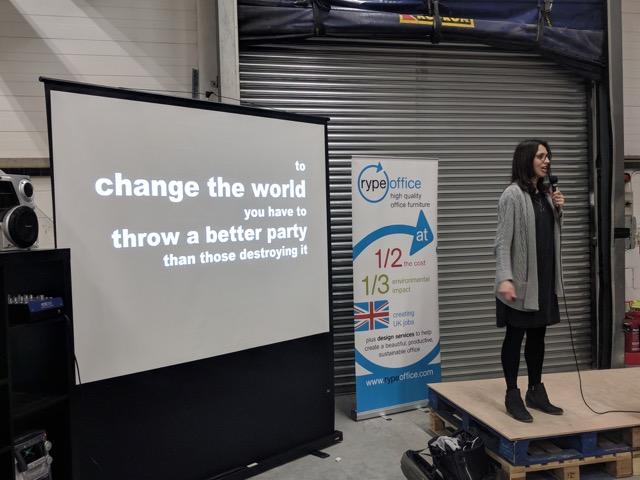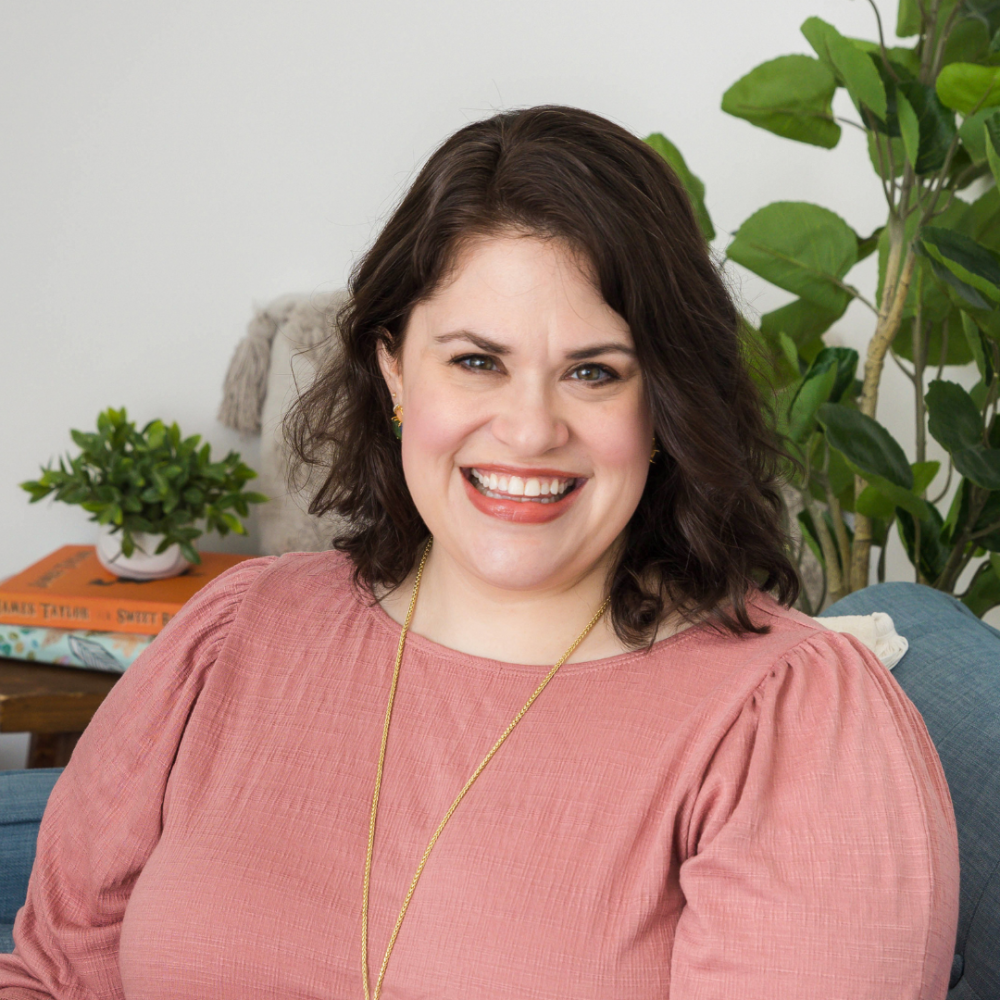
“To change the world, you have to throw a better party than those destroying it.”
So says Louisa Ziane, Chief Brand and Finance Officer at Toast Ale, the company that makes beer using surplus bread and donates its profits to campaign against food-waste.
She and four other inspirational circular economy business leaders took to the stage recently at Circular Economy Club (CEC) London’s event, Fast Five, held at the new co-working space, Sustainable Bankside to showcase some of the UK’s most successful rapid growth circular businesses.
They shared insights, triumphs and challenges of rapidly growing successful businesses from circular principles while tackling major world problems such as food waste and resource management head on. It seems no one told these business leaders that you couldn’t do everything at once.
Adam Woodhall of Inspiring Sustainability was compere for the evening of presentations and Q&A, with securing investment and managing growth emerging as major themes.
Securing investment, donating profits
Louisa Ziane talked about the importance of remaining true to Toast’s principles—one of which is to donate all profits to charity—while securing the investment they needed to grow. The company used crowd funding in 2017 to support its expansion into the US and has just secured a second round of investment here in the UK.
While their own brand is growing fast through direct sales and partnerships with breweries, a desire to disrupt the market remains at the heart of the business and competitors are positively encouraged to join the food-waste fight at any level. An indication of this transparency is a stale-bread-homebrew recipe on their web site. Signs of their growth include being able to find their beer on supermarket shelves in Tesco and Waitrose.
Trillion-dollar opportunity
Winnow is another business focussed on tackling food waste and driving industry change. Its technology improves efficiency in commercial kitchens, helping to avoid wasteful over-production. “Solving the problem of food waste is a trillion-dollar opportunity,” said Marc Zornes, Winnow’s founder.
According to Marc, the key to their success with customers and investors is a strategy that focuses on big players in the sector and the tangible economic value that their technology delivers; typically, a 2% increase in profit margin. From a standing start in 2013, their solution has now saved £11.5 million in over 1000 kitchens with customers all over the globe including Anchor Hotels, Compass Group, Carnival and IKEA.
Shampoo bottles made from beach waste
Terracycle has grown by 28% in two years to a turnover of £32M by “eliminating the idea of waste”. As Anders Warrer, the company’s Social media and Digital Content Manager explained, Terracycle takes hard to recycle materials, the stuff that other recycling companies avoid because it is technically difficult or too mixed-up, diverts it from landfill and creates a return on investment in the process.
“Innovative recycling projects can be used to create value,” said Anders. Like the Terracycle project to make bottles for Head & Shoulders shampoo from plastic beach waste; the bottles and associated marketing campaign are helping the brand to increase shelf-space and visibility in supermarkets, and drive sales.
Circular offices
Greg Lavery’s company, Rype Office, is growing apace through a combination of economic value and deep-seated circular principles. His high quality remanufactured office furniture is cheaper to buy than new, allowing the company to create innovative and stylish office fit-outs at a fraction of the cost and environmental impact of a conventional buy-new approach. It is a simple, common sense idea that chimes well with organisations of all sizes and shapes. Not surprising then that Rype customer base is growing exponentially and their new investment round is already 75% subscribed.
Hiring guitars and toasters
Managing resources better is also the driver for Library of Things, which set out from small beginnings to “Make borrowing better than buying”. Sophia Wyatt is one of three directors who run the business with help from local volunteers at the two community-based hubs they operate in London, where you can hire anything from a guitar to a sandwich toaster for just a few pounds.
It is an idea that is taking off. It is early days but Library of Things has plans for 10 hubs in the city by 2021 and expressions of interest from more than 100 communities all over the world. “It is important to scale at your own pace,” said Sophia.
What is inspiring about all these businesses is the clarity of purpose that runs through everything they do and a dedication to the circular principles on which they are based.
Securing investment and managing growth are familiar challenges for all fast growth businesses but, for these leaders, success does not mean compromise. From beer to office furniture, commercial kitchens and shampoo bottles, they are all convincing examples of how circular economy business models are delivering environmental and social benefits and commercial success.
Photo caption: Louisa Ziane - Chief Brand and Finance Officer at Toast Ales

Megan is a writer and editor interested in sharing stories of positive change and resilience. She is the author of Show Up and Bring Coffee, a book highlighting how to support friends who are parents of disabled children. You can follow her at JoyfulBraveAwesome.com.














